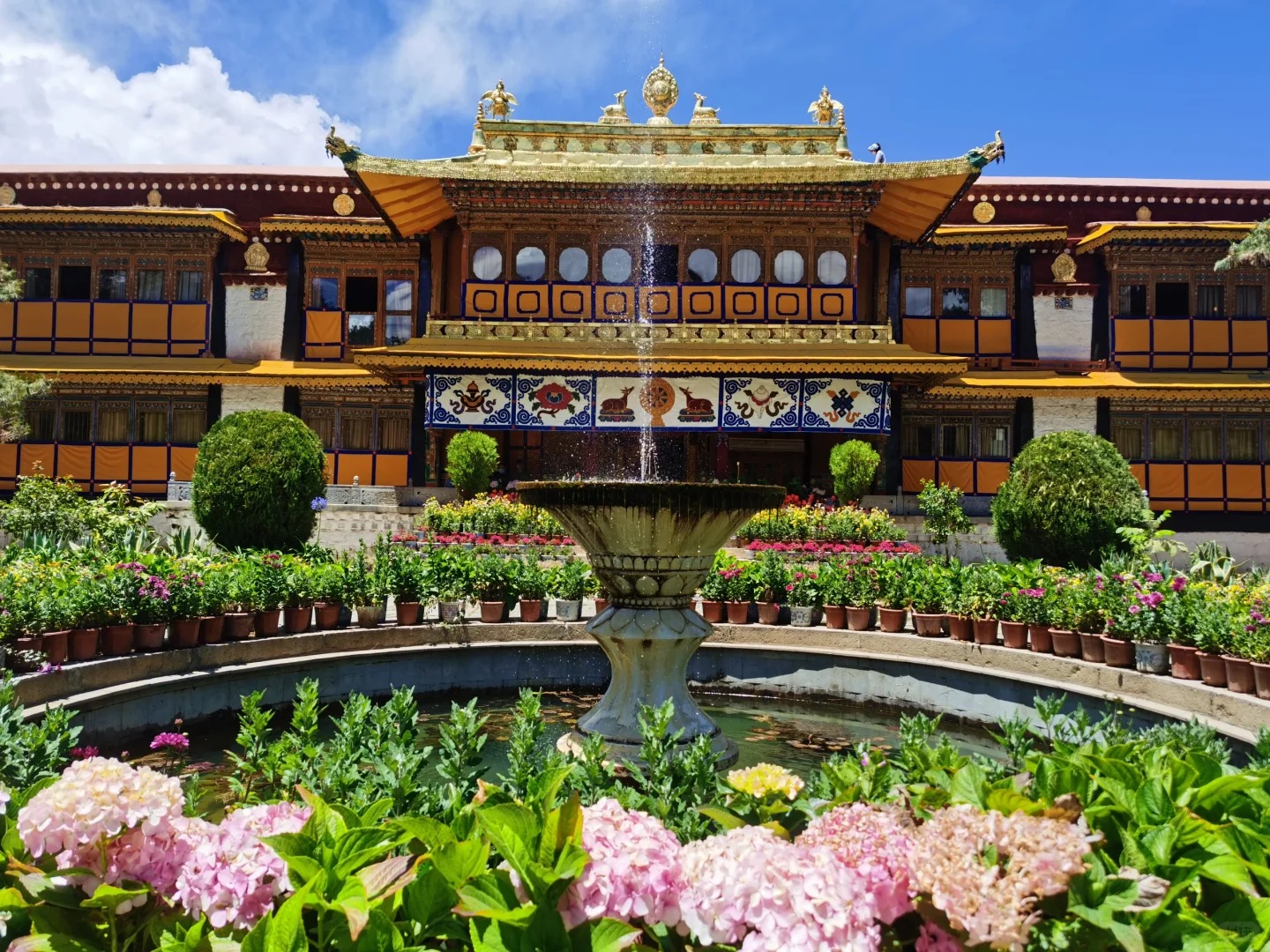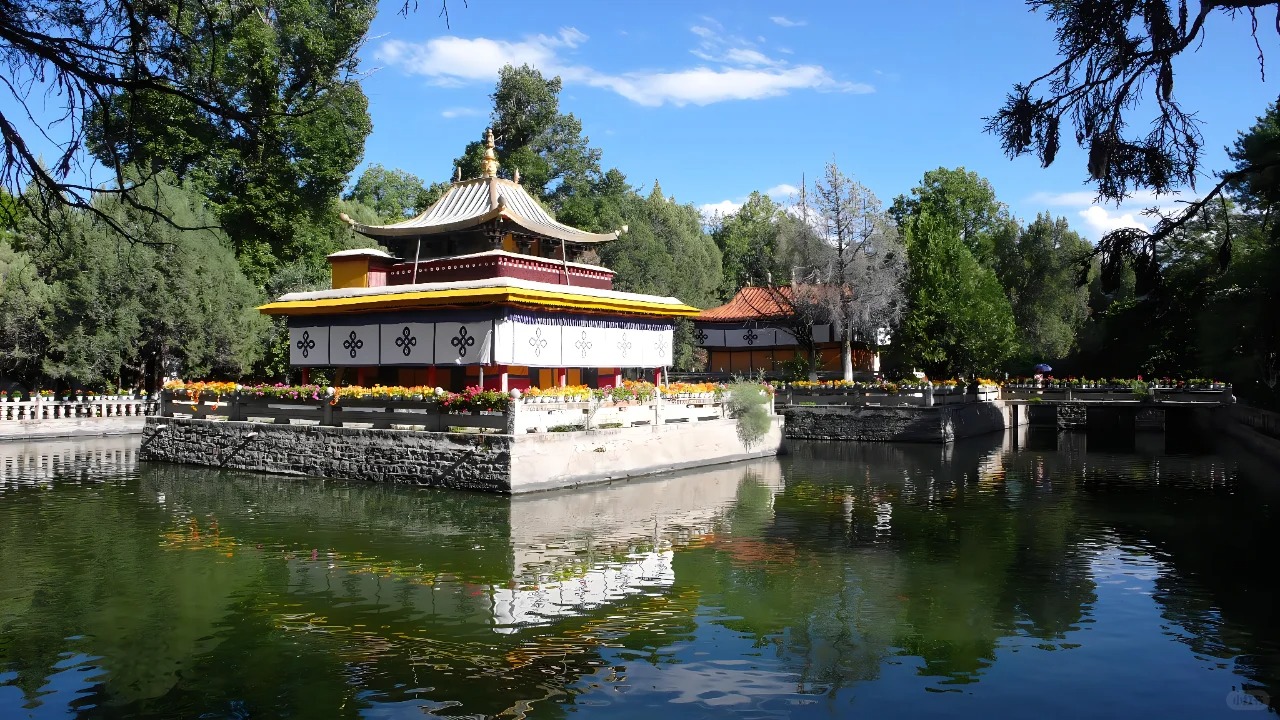Norbulingka Park is located in the western suburbs of Lhasa. It is a typical Tibetan-style garden where the Dalai Lama spent summer and governed politics. There are more than 100 kinds of plants in the garden, including not only common flowers and trees in Lhasa but also exotic flowers and plants from the northern and southern foothills of the Himalayas, as well as precious flowers transplanted from the mainland or imported from abroad. It can be called the Plateau Botanical Garden. The building is mainly composed of Gesang Po Zhang, Golden Po Zhang, and Dadan Mingjiu Po Zhang(Po Zhang means Palace in Tibetan), with 374 rooms, which is the largest artificial garden in Tibet with the best scenery and the most historical sites.
Norbulingka is also a masterpiece of ancient Tibetan architecture. With its unique Tibetan architectural style, it combines Kashmir, Mongolia, and other elements. It is located in a lush garden with various buildings, flowers, trees, and artificial lakes as if it were a fairyland. The buildings of the Summer Palace are divided into the White House, the Red Palace and the Blue Palace. Each palace has its own unique function and design, and the use of colors here will fascinate you.
Norbulingka is not only a place for the Dalai Lama to rest in summer, but also a center for inheriting Tibetan culture, art, and lifestyle. Here you can enjoy extremely exquisite murals, carvings, and handicrafts, which express Tibetan beliefs and philosophy of life in a nuanced way.


Features
Chinese Name: Luo Bu Lin Ka(罗布林卡)
Location: 21 Norbulingka Road, Chengguan District, Lhasa City
Duration of Visiting: 2h-3h
Area: 360,000 square meters
Years of Initial Consruction: 1840s (Dalai VII)
Best Time to Visit: Summer
Travel Information
Tickets Price: Off season: CNY 60
Peak season: CNY 80
Opening Hours: 09:00 - 18:00 (closed on Sunday)
Precaution: It should be noted that there are monks worshipping inside the building, so you can't take pictures. But many of the murals inside are well worth seeing, covering the history of Tibet.



































